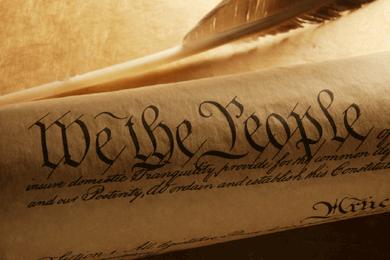If you were to collect all available research on happiness, you’d quickly notice a depressing principle staring you in the face: Human beings are terrible at predicting what makes them happy!
 It isn’t that we don’t want to be happy. Even Thomas Jefferson realized that the “pursuit of happiness” was basic to the fabric of all human beings when he penned the Declaration of Independence. Rather, the problem has always been finding a reliable path to get there.
It isn’t that we don’t want to be happy. Even Thomas Jefferson realized that the “pursuit of happiness” was basic to the fabric of all human beings when he penned the Declaration of Independence. Rather, the problem has always been finding a reliable path to get there.
For many years, people assumed that improving one’s economic conditions would improve their level of happiness. On a macro level, this has been proven false. For example, in the United States, our economic conditions have steadily improved over the last 50 years. However, our measured level of happiness has remained unchanged between 1946 and 2006 (Source: Journal of Personality and Social Psychology). Additionally, this same trend was demonstrated in 11 other industrialized countries around the world.
The same principle repeats itself among individuals: Yes, poverty brings misery – But, once a person economically rises above poverty, the connection between additional money and increased happiness, dissipates.
Harvard professor Daniel Gilbert puts it they way:
“What I’ve learned from data is that I don’t chase dollars now that I have enough of them, because I know that it will take a very large amount of money to increase happiness by a small amount.”
If money and prosperity are not the answer, what is? The authors of Why Loyalty Matters make the case that strong, healthy, and loyal relationships are among the most important factors in the happiness equation:
“The economic engine that has saved us from the yoke of poverty has also taught us to trade our time and labor to get the things we want. The problem isn’t that we are exchanging our time for commodities, but instead that we are exchanging our family’s time, our friend’s time, our ideals’ time to get something.”
On the surface this way of living makes sense until we realize what the research reveals. From a happiness perspective, that we’ve painted ourselves into a corner…
“the most important factor that separates happy people from unhappy people is our relationships with others. It is more important than money, and even more important than our health. Yet we frequently trade our loyalties for things that will not make us happier, namely money.”
The authors demonstrate further that the key to developing and maintaining these essential relationships, is loyalty. In fact, if you dig into the data even further, the ability to give and demonstrate loyalty in personal relationships has one of the highest correlations with happiness of all other factors studied. In other words, if a person gives and receives loyalty in their relationships, the chances of them being happy are very high.
In the next WorkPuzzle blog, I’ll share how research is confirming that loyalty can also have a profound impact on your business. In the meantime, you may want to take some time to do some self-assessment…
Do you consider yourself a loyal person? Can those who are closest to you depend upon your loyalty? If those around you were to list your top five character traits, would loyalty even be on the list? These were tough questions for me to answer—maybe that’s why I learned so much from this book!
Editor’s Note: This article was written by Ben Hess. Ben is the Founding Partner and Managing Director of Tidemark, Inc. and a regular contributor to WorkPuzzle. Comments or questions are welcome. If you’re an email subscriber, reply to this WorkPuzzle email. If you read the blog directly from the web, you can click the “comments” link below.

